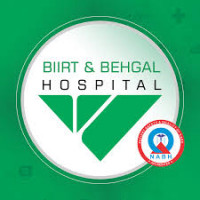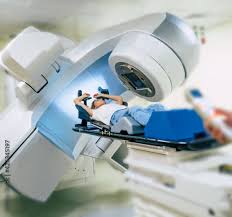Role of a Medical Oncology Doctor in Chemotherapy and Beyond!

Strong 8k brings an ultra-HD IPTV experience to your living room and your pocket.
Cancer treatment is a complex journey that involves various healthcare professionals, with the medical oncology doctor playing a central role. From administering chemotherapy to coordinating multi-disciplinary care, these specialists are pivotal in designing and managing effective cancer treatment plans. Their responsibilities go far beyond prescribing drugs — they support patients emotionally, medically, and practically through every phase of the disease.
Understanding the Role of a Medical Oncology DoctorA medical oncology doctor specializes in diagnosing, treating, and managing cancer using non-surgical methods, mainly through systemic therapies such as:
- Chemotherapy
- Hormonal therapy
- Targeted therapy
- Immunotherapy
They are trained to evaluate the type and stage of cancer, suggest treatment plans tailored to individual needs, monitor progress, and manage side effects. Their role bridges science with empathy, guiding patients and their families through what can be a daunting path.
Chemotherapy: The Core of Medical Oncology
One of the most recognized areas where a medical oncology doctor steps in is chemotherapy. Chemotherapy involves using drugs to destroy cancer cells, often targeting those that grow and divide quickly.
Responsibilities in Chemotherapy Management:
- Assessing Suitability – Not all patients are ideal candidates for chemotherapy. The medical oncology doctor evaluates medical history, cancer type, and overall health before recommending it.
- Planning the Regimen – Different cancers require different drug combinations, dosages, and durations. The doctor develops a personalized protocol.
- Monitoring Side Effects – Chemotherapy can cause fatigue, nausea, hair loss, and immune suppression. The oncologist helps minimize these effects through supportive medications and monitoring.
- Adjusting Treatment – Based on how the body responds, the medical oncology doctor may modify the regimen to ensure the best outcomes with the least harm.
Beyond Chemotherapy: Comprehensive Cancer Management
While chemotherapy is a crucial component, the role of the medical oncology doctor goes far beyond this traditional method. Advances in cancer care have introduced several new treatment modalities, all of which come under the oncologist’s expertise.
1. Targeted Therapy
- These medications attack specific molecules that contribute to cancer development.
- The doctor uses genetic and molecular testing to determine whether a patient’s tumor is eligible for targeted therapy.
2. Immunotherapy
- Using the body's immune system to destroy cancer cells.
- Oncologists monitor immune responses and manage immune-related side effects.
3. Hormonal Therapy
- Used for cancers like breast and prostate cancer that are hormone-sensitive.
- The medical oncology doctor prescribes medications that block or lower hormone levels in the body.
4. Maintenance Therapy
- In some cases, after initial treatment success, lower-intensity therapy is continued to prevent relapse.
- Oncologists design and oversee these long-term strategies.
Coordination and Collaboration
A medical oncology doctor rarely works in isolation. Cancer treatment requires input from a team that includes surgeons, radiation oncologists, pathologists, nurses, palliative care specialists, and dietitians. The oncologist’s role often includes:
- Coordinating with other specialists to design an integrated treatment plan.
- Leading tumor board discussions, where cases are reviewed by a panel of experts.
- Managing transitions between active treatment, follow-up care, and survivorship.
Patient Education and Emotional Support
A cancer diagnosis can be overwhelming, and patients often face difficult decisions. A medical oncology doctor:
- Explains complex treatment options in understandable terms.
- Helps patients weigh the risks and benefits of each approach.
- Provides reassurance, encouragement, and clear information during treatment.
- Guides families and caregivers on how to support the patient effectively.
Monitoring and Follow-Up Care
Cancer doesn’t end with treatment. Regular follow-up is essential to detect recurrence, manage long-term side effects, and ensure emotional well-being. Medical oncologist schedule:
- Periodic scans and blood tests
- Late effect assessments (especially after chemotherapy or immunotherapy)
- Psychosocial counseling referrals when needed
- Lifestyle advice and cancer prevention strategies
- Advancing Cancer Research
Many medical oncology doctors are involved in clinical trials and research. They help develop and test new drugs, improve existing protocols, and bring cutting-edge therapies into standard practice. By participating in ongoing research, they contribute to a future where cancer treatment is more effective and less invasive.
When Should You See a Medical Oncology Doctor?
You should consult a medical oncology doctor:
- After receiving a cancer diagnosis.
- When considering options like chemotherapy, immunotherapy, or targeted therapy.
- For second opinions on treatment plans.
- If you have symptoms that imply recurrence or side effects.
Conclusion
The role of a medical oncology doctor is multidimensional — they are not just treatment planners but also educators, caregivers, and advocates. From diagnosing the disease and managing treatments like chemotherapy to supporting recovery and follow-up, they remain involved in every aspect of a patient’s cancer journey. Their combination of medical expertise, clinical judgment, and compassionate care makes them an indispensable part of the fight against cancer. As cancer treatment continues to evolve, the guidance and leadership of these professionals will remain central to achieving better outcomes and enhancing quality of life.
Note: IndiBlogHub features both user-submitted and editorial content. We do not verify third-party contributions. Read our Disclaimer and Privacy Policyfor details.




